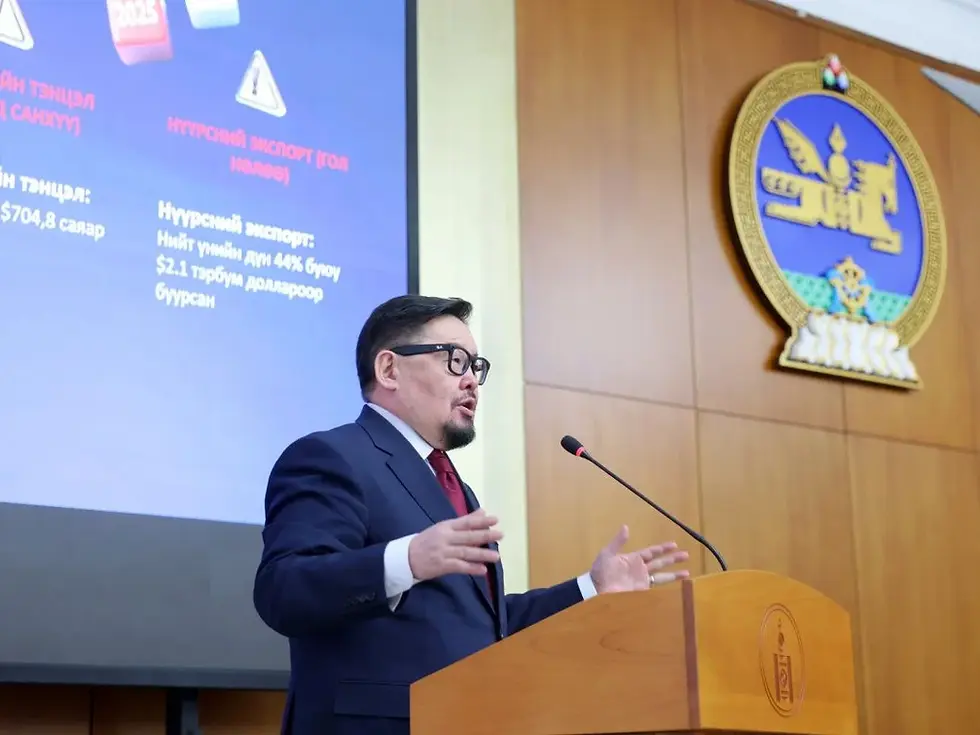Mongolia Opposition Unites to Challenge the Government in Local Elections
- Mongolia Weekly

- Sep 11, 2020
- 3 min read
Updated: Sep 10, 2023
Mongolia's usually divided opposition parties have teamed up to announce a united group of candidates for the October 2020 local elections. They aim to challenge the government, led by the Mongolian People's Party (MPP).
The Democratic Party (DP) leads this new coalition, which also includes the Mongolian People's Revolutionary Party and the NEW Party. Together, they received about 38% of the public's support, while the ruling MPP received 45% in the June parliamentary elections. In this coalition, the DP is the dominant party, making up around 80% of the candidates. President Khaltmaagiin Battulga hinted his tacit support for this coalition against the MPP.
The upcoming elections will serve as a gauge of public satisfaction with the government and also determine Prime Minister Khurelsukh's popularity before he makes a decision about running for the presidency in 2021.

The opposition is emphasizing the need to balance the unrestrained MPP government with opposition influence at the local level. The opposition is pledging free public transportation in Ulaanbaatar, reopening the economy, and lifting pandemic restrictions.
In contrast to parliamentary elections, local elections typically don't receive as much attention. Voter turnout tends to be low because authorities don't set a minimum threshold for the election to be valid. Additionally, there are no restrictions on running for multiple council seats simultaneously.
How many candidates run in Mongolia's local elections?
In the 2016 elections, over 15,000 candidates vied for approximately 7,000 council member positions in various administrative units, including Ulaanbaatar's 9 districts, over 120 sub-districts, 21 provinces, 330 soums, and 1,568 bags. Each administrative unit usually reports to higher-ranking governors, but power can be divided if the opposition wins.
What are the key battlegrounds in Mongolia's local elections?
The most significant battlegrounds in the local elections are expected to be in the swing provinces, some of which have significant mining activities, such as Bayan-Ulgii, Zavkhan, Khovd, Govi-Sumber, Umnogovi, and Tuv. The Ulaanbaatar elections are anticipated to be highly competitive, as the winner will nominate the next city mayor.
Who will likely win Mongolia's local elections?
In the provinces, the outcome is uncertain, and there's no guarantee that the MPP will replicate their landslide victory from June.
For instance, in Umnogovi, which is the largest commodity exporter, voters shifted from the DP to the MPP in 2016. It remains unclear whether the ruling party, which currently holds 20 out of 30 seats in the provincial council, can maintain control next month.
Umnogovi's governor, Naranbaatar (MPP), was elected to the national parliament this June. The second parliamentary seat went to Bat-Erdene (DP).
In Khanbogd soum, where the Rio Tinto copper-gold Oyu Tolgoi mine is located, voters are divided between the MPP and DP.
How local election campaign is run in Mongolia?
The election campaign period spans 15 days, and lesser-known candidates may struggle to garner significant votes. Given the absence of local COVID transmission, there's no discussion of delaying the elections. Both politicians and the public have largely stopped following social distancing and mask-wearing guidelines.
For the opposition and the DP, the October elections represent an opportunity to regain favor with frustrated voters, who are concerned about increased road traffic and an overall economic downturn. For the MPP, it's a test of whether the party can maintain its hold on both national and regional governance.
Do you think it's more important than ever to help the world audience understands the dizzying political and economic changes occurring in Mongolia today? Can you look at local news stories from a global perspective? Join the conversation by contributing to Mongolia Weekly - the first-ever weekly newsletter in English offering commentaries and insights into Mongolian politics, elections, policy & regulatory changes and foreign policy trends.



Comments